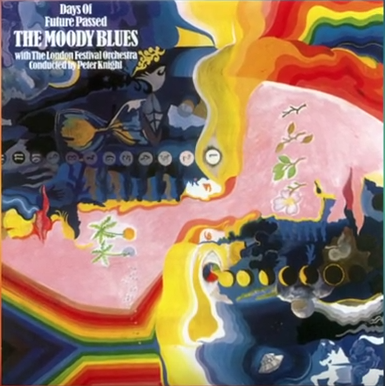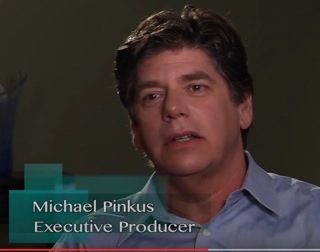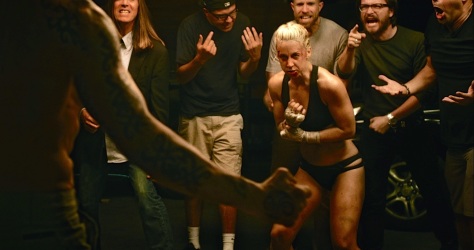
By Julie Pendray
IDYLLWILD, Ca. — The story of a woman trying to escape an illegal fighting ring took top honors at Idyllwild International festival of Cinema in January. It was the first time in the event’s seven-year history that a “short” has won Best of Festival. “Brix and the Bitch” is just under 10 minutes.
The movie, which has garnered numerous awards at festivals across the United States, brought home the Best Director of a short award in Idyllwild for Nico Raineau . He’d been a finalist in Season 4 of HBO’s rebooted Project Greenlight right before he made this short.
In an interview after the Idyllwild festival, Raineau told me it marks a different direction for him.
“The Project Greenlight contest was very demanding and the experience very rewarding, but all the attention I received was for comedy. I felt myself being pigeonholed.”
So Raineau made the polar opposite: “Brix and the Bitch.”
“Rarely do we see films where women behave with the degree of raw violence as we feature in this one,” he said. “As a feminist filmmaker, boundaries need to be pushed in the pursuit of women having the same opportunities for creative expression as men, especially within the male dominated action genre, but I nonetheless recognized that the violence needed to be justified narratively.”
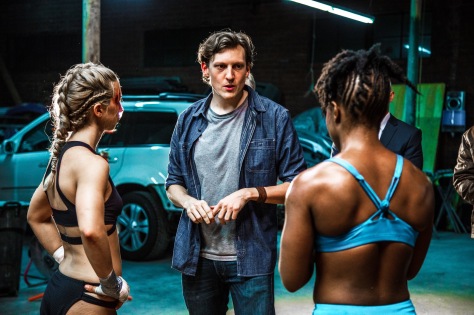
He said he wrote the film for actresses he already knew: Dre Swain and Alex Marshall-Brown . The women each won a Best Actress award among shorts at the festival. They tied with Academy Award winner Melissa Leo for her role in “Mother’s Day.”
“Brix and the Bitch” also won Best Editing and Cinematography and Best Supporting Actor (David Carey Foster) in the short category.
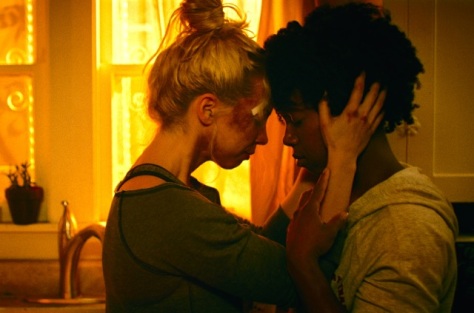
Swain leads as the heroine known in the fighting circle as “The Bitch.”
She told me, “The roles were as challenging physically as they were emotionally – a rare combination to find for female roles. Our characters were not defined by our relationships to any of the men in the story. So many times it’s about whose wife, girlfriend, mistress we are. These ladies stand on their own and have their own compelling story to tell.”
Marshall-Brown, who plays The Bitch’s lover, Brix, said, “We’re in a new age for how women are represented in cinema. As a society, we have not escaped the trend toward the manic pixie dream girl, the breathy voluptuous femme fatale, nor from those damsels in distress who frequently defer to the male hero’s ‘What’s next?’ plans. However, the notion of a heroine, capable of garnering her own salvation, is a fairly recent novelty which (gratefully) is gaining a more universal acceptance.”
Raineau said he was exposed to feminism from a young age by his mother, who raised him almost exclusively since his father’s work required him to travel a lot.
“She was an example of a strong woman who balanced parenthood, marriage, and being a business owner, and I think that influenced me quite a lot,” he told me.
Raineau said his girlfriend Lauren Schacher, a writer and filmmaker, also opened his eyes to gender inequality.
“She inspires me with her advocacy in the feminist movement,” he said. “She is very outspoken in the industry, not just in regards to feminism but also racial diversity. She is the co-host of a female oriented screenwriting podcast called Chicks Who Script.”
Marshall-Brown added, “Our focus on female empowerment was affirmed when the Connect Film Festival awarded us with The Bechdel Award. We passed the Bechdel test proving that the success of the female characters driving our plot was not dependent on the influence of a man. Winning that award was a great achievement for all of us.”

She said Raineau and Swain took great pains to develop The Bitch heroine.
“Allowing her journey to take shape in a hyper masculine environment, such as an underground fight ring, highlights the strength and ability for women to not only adapt but survive the obstacles intrinsic to our male driven society. She does not rely on someone to save her from her new-age indentured servitude. Yes, she does receive some help/guidance from her lover, but in the end she is responsible for claiming her own victory. She has the power to buy her own freedom.”
Marshall-Brown said “The Bitch” is a “contentious moniker” worth discussing.
“It is most likely a label placed on her by the spectators within her fight ring, designed to belittle, degrade, and dehumanize her. Nevertheless, she claims it. She stands strong within it, and grows empowered by the reputation she has built from it.”
Marshall-Brown came into this movie with a few years of martial arts under her belt.
“I’ve been training in Muay Thai (or Thai Boxing). It’s a system that utilizes punches, kicks, knees and elbows to engage in close combat. I also have a fair amount of combat training in other systems including kali, silat, and various performance-based weapons training.”
Swain trained with her in a gym to prepare for her performance. She said the fight scenes are her favorites.
 “I love getting to be physical as well as emotional, so when you put it all together, it’s an incredible challenge,” she said. “Exhausting, yes, but incredibly satisfying. I didn’t have any formal fight training going into the film. I was very strong and very fit and very active, but since I was playing a fighter (and sharing the screen with two actual fighters, Tim Storms and Alex), production put me in Muay Thai. It was the hardest thing I’ve ever done, prepping for this film. I changed my diet, my workout, my everything to get into the right shape to do Nico’s character justice. I’d wake up at 4:30 a.m., run, come home, shower, meal prep, go to my day job … weight lift after work, then go to fight training after lifting, then sprinkle in rehearsal, fight choreography, fittings, etc. It was the busiest, most exhausting, challenging time of my life. But I sincerely loved every second.”
“I love getting to be physical as well as emotional, so when you put it all together, it’s an incredible challenge,” she said. “Exhausting, yes, but incredibly satisfying. I didn’t have any formal fight training going into the film. I was very strong and very fit and very active, but since I was playing a fighter (and sharing the screen with two actual fighters, Tim Storms and Alex), production put me in Muay Thai. It was the hardest thing I’ve ever done, prepping for this film. I changed my diet, my workout, my everything to get into the right shape to do Nico’s character justice. I’d wake up at 4:30 a.m., run, come home, shower, meal prep, go to my day job … weight lift after work, then go to fight training after lifting, then sprinkle in rehearsal, fight choreography, fittings, etc. It was the busiest, most exhausting, challenging time of my life. But I sincerely loved every second.”
Swain said her workout is still strict, though not as demanding.
“I run three days a week, weight lift five days a week and sprinkle in the occasional fight training/bouldering/dance class,” she said.
Swain said she kept up with the fight training because she fell in love with the workout, the discipline and the community. As far as diet goes now, she eats mostly paleo and keeps alcohol to a minimum, she said.
In some fight scenes, Swain appears almost like a gravatar due to the slow motion and fighting style, but Raineau said no digital effects were used.
“The visceral and realistic quality of the fights really comes down to the talented people involved in making the film,” he said.
Leo Kei Angelos was the fight director / stunt coordinator. He was a fellow Project Greenlight Top Ten Finalist with Raineau.
“Leo is a very talented director himself,” Raineau said. “We discussed the story and characters at length, and then Leo choreographed the fight sequence, beat by beat, with me interjecting to re-shape certain moves and moments to ensure the story was being told through the action and that each move was true to the characters.”
Marshall-Brown said Angelos has vast knowledge of physical dynamic movement.
“He built the fight around how our bodies move best,” she said. “Also Dre did a phenomenal job of training beside me in a Muay Thai gym to build the necessary muscle memory to look like the ultimate fighter. We rehearsed for a little over two weeks leading up to the shoot. Once we got on set, we were a well-oiled machine. Some of the hits were masked to camera while others, like some of the stomach kicks, did involve direct contact. Ultimately, we trained with safety as our primary focus. All the blood that we shed was fake. We did get fairly bruised up by the end of the shoot, but not much more than we anticipated.”
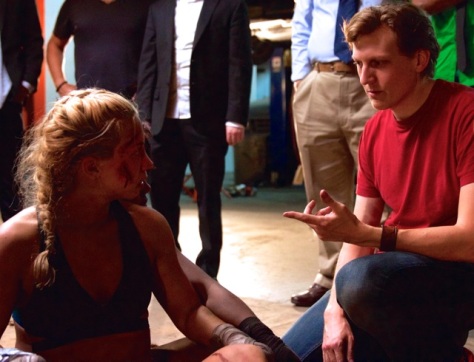
Makeup in the movie was realistic.
“Lili Kaytmaz was our kickass makeup artist,” Marshall-Brown said. “She made everything look more gruesome and brutally lifelike. That lady is crazy talented.”
Raineau said he met with Kaytmaz early in pre-production, once the fight was mostly choreographed, and went through every movement of the fight to decide what the impact of each hit would look like.
“On set, we filmed the fight sequence in chronological order, stopping in between every few hits so Lili could add the proper make-up effects,” he said.

John Gardiner was the award-winning cinematographer.
Scott Morris edited the movie. He was involved from the beginning, reading drafts of the script and providing feedback, Raineau said.
“I enjoy involving the editor in the story development process because, after all is said and done with shooting the film, the shaping of the story really comes down to the director and the editor sitting in a room together and deciding how the story is going to be told. Scott is remarkably talented and an intuitive storyteller, so he really helped bring this film to life.”
Swain, Marshall-Brown and Raineau are all based in Southern California. Swain grew up in Winfield, Kansas. Marshall-Brown describes herself as “a foreign service brat,” who grew up predominantly in the Caribbean and South Africa before attending boarding school in North Carolina. She later escaped the New York winters for more sunshine on the West Coast.
Raineau, a native of Mystic, Connecticut, started out as an actor in his high school drama club. Soon he realized he preferred directing.
In an interview for TheDay.com he said, “What I was so passionate about as an actor was embodying a character and getting to understand why someone does what they do and how they interact with the people around them. I realized that if you step back even further, a director gets to do that — but with all the characters. Then it becomes not just about psychology but also sociology. It just opened up a whole new world, and I haven’t looked back.”
At the Idyllwild awards ceremony, he gave perhaps one of the most heartfelt responses of the evening as he accepted a trophy for his team’s efforts.
“Being a film maker is f*****g hard,” he said in the spotlight. “We elevate each other.”
Judging by the inspiring stories of struggle and success that were socially shared by his peers during the festival, we can only imagine many in the audience could feel his “pain.”
You can view the official trailer for Brix and the Bitch on Vimeo by clicking here.
The movie will screen at these festivals in March and April:
Omaha Film Festival
March 8th – 13th
http://omahafilmfestival.org/
River Bend Film Festival
March 31st – April 2nd
http://riverbendfilmfest.com/
Phoenix Film Festival
April 7th – 14th
http://www.phoenixfilmfestival.com/
Copyright to Julie Pendray & SpecialsNotOnTheMenu.com . No permission is given for re-publication.






